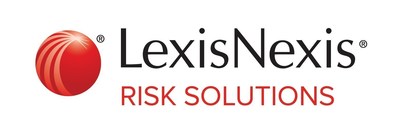LexisNexis Auto Insurance Trends Report Highlights U.S. Auto Insurers' Challenges in a Hard Market
2023 report shares data insights that span the auto insurance ecosystem to help carriers weather the storm
This year's report analyzes 2022 data and tracks macro-market conditions such as volatile shopping and switching, increased accident severity and the impact of claims on customer retention as carriers continue to take rate in an effort to return to profitability.
"This hard market, which we've been experiencing since 2022, does not have to be unprofitable for insurers. Opportunities are embedded within each of the challenges impacting the auto insurance industry today," said Adam Pichon, senior vice president of auto insurance and claims, LexisNexis Risk Solutions. "By assessing annual trends based on
Auto Insurance Trends Highlight a Challenging Year
- All claims severity parameters rose: bodily injury, property damage and collision – Total loss ratios continue to worsen, as
27% of collision claims for the first nine months of 2022 were total losses. Property damage severity increased8.5% year over year, collision severity was up9% from 2021 and insurers faced 8-10% increases in bodily injury severity.i - Claims customer satisfaction has a direct correlation to policy switching – As total loss ratios worsened in 2022, a LexisNexis Risk Solutions market research report showed that
33% of respondents switched insurers or considered switching following their claims experience. U.S. auto insurance shopping starts slowly, ends strong – The first half of 2022 was shaped by negative shopping growth. That changed significantly in the third and fourth quarters, as shopping volumes grew, largely in response to rate increases. Moreover, consumers not only shopped more, but were also more likely to switch their policies when they did shop. In fact, we observed record new business volumes in November and December, resulting in10.2% growth in the fourth quarter of 2022.- As the driving violation mix continues to evolve, some of the most dangerous violations, like speeding, DUIs and distracted driving, returned in many cases to pre-pandemic levels – Major speeding rose more than
20% above 2019 rates, with DUI levels tracking closely to and potentially above those of 2019 nationally. And distracted driving remains a serious concern, particularly among the Generation Z age demographic. - Carriers beyond the top 10 increased adoption of telematics and continued increase is expected – Interest in telematics-based driving behavior insights increased and the move toward exchange-based solutions is poised to grow even more over the next few years as nearly one in two top ten tier carriers use an exchange-based product. But, one in five top 11-20 tier insurers uses an exchange-based solution and one in four among the top 21-50 tier uses one, surpassing the top 11-20 tier.
- Even with low inventory, high prices and low sales volumes overall for
U.S. vehicle sales, Advanced Driver Assistance Systems (ADAS), electric vehicles (EVs) and connected car data grew year over year –U.S. Vehicle Sales were the lowest they've been since 2011ii, which meant fewer opportunities for auto insurers to win new business. EVs accounted for5.8% ofU.S. new car sales in 2022, increasing from3.1% the year prioriii and expected to continue as government incentives and infrastructure investments help lower the entry barriers. LexisNexis Risk Solutions expects EVs, ADAS features and connected car data to help drive profitability with more ADAS-equipped vehicles on the road that are effective at reducing claim frequency and more automakers leveraging connected car data to help insurers and consumers manage insurance costs. - Core rating variables were under pressure, creating regulatory environment challenges for insurers – A number of legislative bills were proposed in 2022, most of which did not pass or move forward, and the time spent defending core rating variables grew exponentially. Trade associations, partners and insurers will continue to help clarify terms and data traditionally used in insurance underwriting as well as bias testing results.
"Looking at recent trends, the first quarter of 2023 seemed to follow the same trends as last year with few signs of returning to a soft market, making it even more important for insurers to have the knowledge and tools to help them remain profitable in 2023," continued Pichon. "A more competitive advantage can start with better claims handling workflows, better outcomes can be initiated by distracted driving awareness and mitigation, and carriers can begin planning for when the market softens – all with greater clarity helped gained through data insights. Renewals, chargeable violations and improved segmentation are all examples of ways to help improve results using data."
Download the 2023 LexisNexis Risk Solutions Auto Insurance Trends Report.
About LexisNexis Risk Solutions
LexisNexis® Risk Solutions harnesses the power of data and advanced analytics to provide insights that help businesses and governmental entities reduce risk and improve decisions to benefit people around the globe. We provide data and technology solutions for a wide range of industries including insurance, financial services, healthcare and government. Headquartered in metro
Media Contacts:
Chas Strong
Director, Communications
LexisNexis Risk Solutions
+1.706.714.7083
Charles.Strong@lexisnexisrisk.com
i Claims severity data was derived from LexisNexis Insurance Market Insights, a set of dashboards that deliver market-wide insights about claims faster than industry averages.
ii Tucker, Sean. "New Car Sales Fell in 2022, But New Electric Car Sales Rose Dramatically." January 17, 2023. https://www.kbb. com/car-news/new-car-sales-fell-in-2022-but-new-electric-car-sales-rose-dramatically/
iii Ibid
![]() View original content to download multimedia:https://www.prnewswire.com/news-releases/lexisnexis-auto-insurance-trends-report-highlights-us-auto-insurers-challenges-in-a-hard-market-301821774.html
View original content to download multimedia:https://www.prnewswire.com/news-releases/lexisnexis-auto-insurance-trends-report-highlights-us-auto-insurers-challenges-in-a-hard-market-301821774.html
SOURCE LexisNexis Risk Solutions








